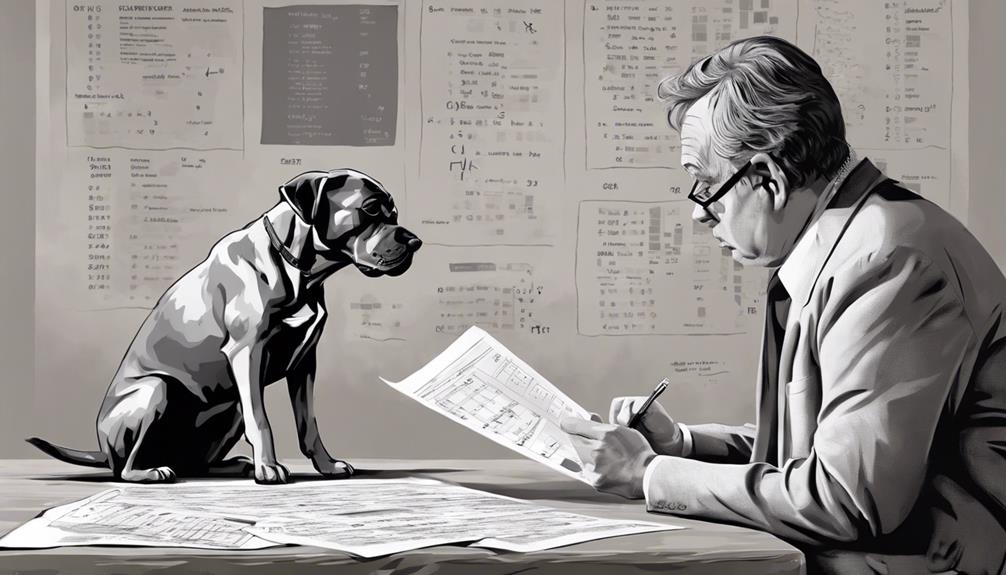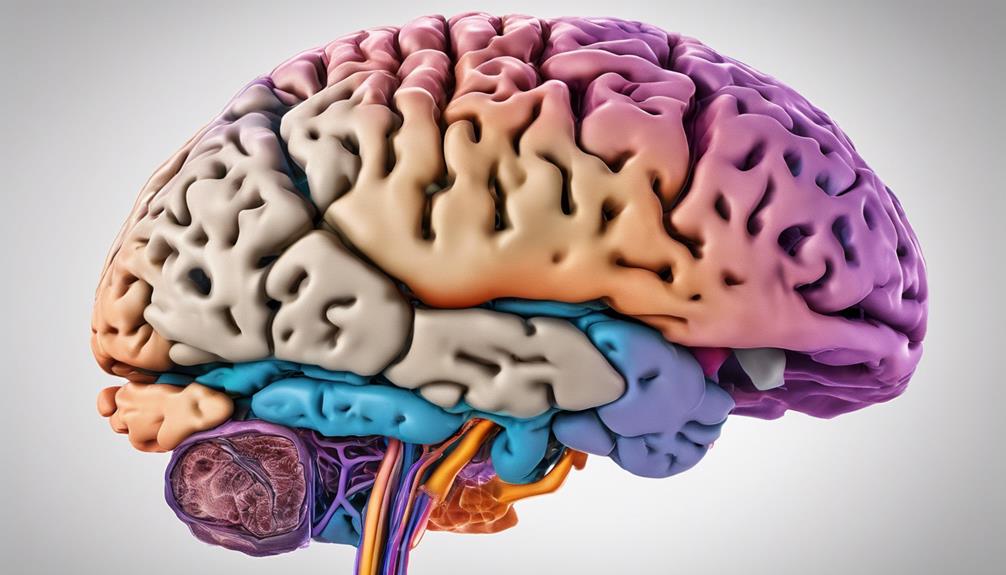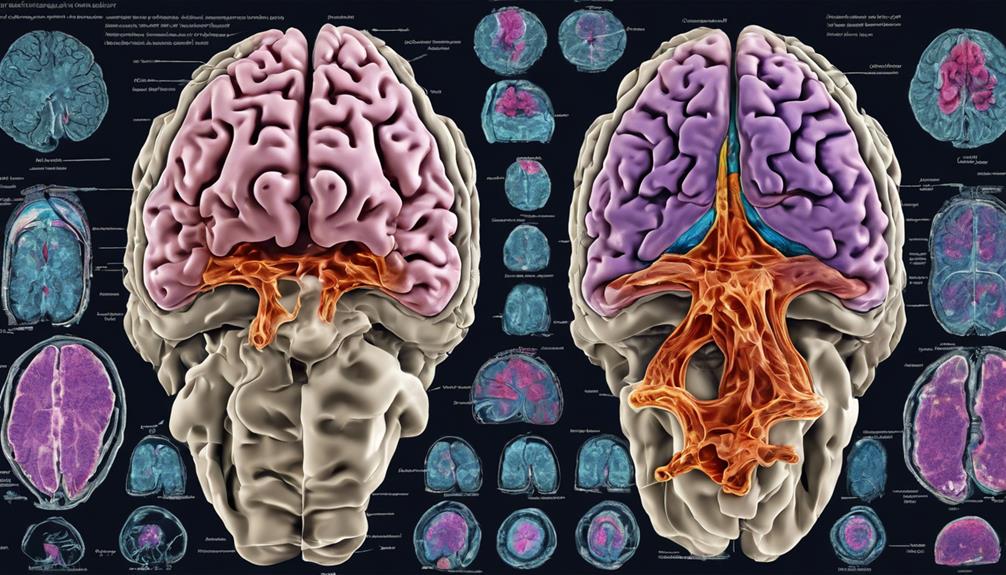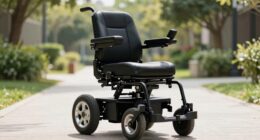As pet owners, we frequently view our dogs as faithful companions, representations of unwavering happiness and encouragement in our lives. However, as our beloved pets grow older, we may observe alterations that prompt worries regarding their cognitive well-being. Have you ever questioned whether your dog’s memory loss or confusion could indicate a more severe issue?
The 'Does My Dog Have Dementia Quiz' holds the key to unraveling these mysteries and guiding us towards understanding our canine companions better.
Understanding Canine Cognitive Dysfunction
In older dogs, Canine Cognitive Dysfunction (CCD) manifests as a condition characterized by symptoms such as increased restlessness, decreased recognition of familiar individuals, and disrupted sleep patterns. Approximately 50% of dogs aged 11 and older exhibit signs of CCD, leading to behavioral changes like reduced playfulness and increased house-soiling. Owners often observe a decline in their dog's responses, concerns about aggression towards family members, and overall behavior alterations such as heightened nervousness.
Recognizing these symptoms is essential in seeking advice on caring for dogs with CCD, including determining the appropriate time for euthanasia or exploring strategies for life extension. Proper diagnosis, management, and support are crucial for dogs with CCD, focusing on creating a secure and structured environment, introducing mental stimulation activities, and considering medication options under veterinary guidance.
Understanding Canine Cognitive Dysfunction is imperative for providing the best care and support for older dogs experiencing cognitive decline and changes in behavior towards familiar people.
Signs of Dog Dementia to Watch For

Regularly observing your dog for signs of disorientation, forgetfulness, and behavioral changes can help in early detection of potential dementia symptoms. When it comes to canine dementia, it's crucial to pay attention to subtle changes in your furry friend's behavior. Here are some signs of dog dementia to watch for:
- Disorientation: Watch for your dog getting lost in familiar surroundings.
- Forgetfulness: Note any difficulty recognizing familiar people or objects.
- Behavioral Changes: Be alert to behaviors like aimless wandering or forgetting the purpose of being in certain places.
- Mood Swings: Pay attention to changes in sleeping patterns, mood swings, or loss of interest in activities they used to enjoy.
Being attuned to these signs can aid in catching potential dementia early, allowing for prompt intervention and care. If you notice any of these signs in your dog, consulting with a veterinarian for a proper evaluation is essential to ensure your furry companion's well-being and quality of life.
Taking the Dementia Quiz for Dogs
Assessing your dog's cognitive health through the dementia quiz can unveil crucial insights into potential signs of cognitive dysfunction in older dogs. The Canine dementia quiz is designed to help pet owners identify behavioral changes like confusion, disorientation, and memory loss, which are common symptoms of dementia in dogs. By observing your dog's behaviors and responses to the quiz questions, you can gain a better understanding of whether your canine companion may be experiencing symptoms of dementia.
Taking the dementia quiz for dogs is the first step towards recognizing and addressing potential cognitive issues in your aging pet. It serves as a valuable tool for pet owners to assess their dog's cognitive function and seek appropriate guidance from a veterinarian. Consulting a vet after completing the quiz can lead to a proper diagnosis and management plan tailored to your dog's specific needs. By being proactive in evaluating your dog's cognitive health, you can ensure a better quality of life for your furry friend as they age.
Interpreting Quiz Results for Your Dog

Upon completing the dementia quiz for dogs, interpreting the results can provide valuable insights into your canine companion's cognitive health status. The quiz results can indicate if your dog is showing signs of dementia based on their behavior. It helps in identifying specific symptoms such as confusion, forgetfulness, and altered activity patterns. The results provide insights into whether your dog may need further evaluation by a veterinarian. Understanding the quiz results can guide you in implementing appropriate care and management strategies. It serves as a valuable tool in recognizing potential cognitive changes in your dog and seeking professional advice.
Recognizing signs of cognitive decline in our beloved pets can be concerning but vital for their well-being.
Identifying specific symptoms through the quiz results can help us better understand our dog's needs.
Seeking further evaluation by a veterinarian based on the quiz outcomes shows our commitment to our dog's health.
Implementing appropriate care strategies guided by the quiz results demonstrates our dedication to providing the best possible support for our furry friends.
Next Steps for Dementia Care in Dogs
For effective dementia care in dogs, consulting with a veterinarian is crucial to establish a comprehensive management plan tailored to your pet's specific needs.
When a dog gets diagnosed with dementia, there are important steps you need to take to ensure their well-being. Specialized tests are available to accurately diagnose dementia in dogs, and vet-created quizzes can provide reliable results to confirm the condition.
Once the diagnosis is confirmed, it's essential to consult with a veterinarian to develop a personalized care plan. Implementing safety measures and creating structured environments can help dogs cope with dementia symptoms and improve their quality of life.
Developing a plan for specialized care, including medication, diet adjustments, and mental stimulation, is crucial in managing the progression of dementia in dogs. By taking proactive steps and working closely with your veterinarian, you can provide the best possible care for your furry companion facing this challenging condition.
Frequently Asked Questions
What Are the First Signs of Dementia in Dogs?
We notice the first signs of dementia in dogs through forgetfulness of commands, disorientation, and changes in behavior like altered eating habits or increased anxiety. These early indicators can be subtle but are crucial in identifying cognitive decline in our furry companions.
Paying attention to these cues can help us provide the best care and support for our dogs as they navigate these challenging times.
How Do I Test My Dog for Dementia?
When testing for dementia in our dogs, it's crucial to observe any changes in behavior, memory, or responsiveness. Consulting a veterinarian is key for an accurate diagnosis.
Specialized tests and quizzes tailored for canine cognitive dysfunction can provide valuable insights. Early detection allows for the implementation of safety measures and the development of a comprehensive management plan.
With proper care and support, we can help our furry companions navigate through the challenges of dementia.
What Breeds of Dogs Are Prone to Dementia?
Certain breeds, like Boxers, Cocker Spaniels, and Poodles, are more prone to dementia. Smaller breeds, such as Dachshunds and Chihuahuas, have a higher risk.
Age is a significant factor, with older dogs being more susceptible. Genetic factors can influence specific breeds like Beagles and Golden Retrievers.
Despite breed predisposition, any dog can develop dementia with age. It's crucial to monitor older dogs for signs of cognitive decline.
What Are the Three Stages of Dog Dementia?
We can break down dog dementia into three stages: mild, moderate, and severe.
In the mild stage, dogs may display subtle signs like confusion or forgetfulness.
Progressing to moderate dementia brings more pronounced disorientation, altered sleep patterns, and difficulty recognizing familiar people or objects.
Severe dementia sees a significant cognitive decline, extensive disorientation, loss of bladder control, and a marked decrease in overall quality of life.
Understanding these stages can help pet owners address dementia-related changes in their dogs effectively.
Conclusion
After completing the 'Does My Dog Have Dementia Quiz,' it's clear that our furry friends can experience cognitive changes just like us.
Remember, early detection and intervention are key in managing dementia in dogs. So, keep a close eye on your pup's behavior and seek veterinary advice if needed.
Let's give our loyal companions the care and support they deserve as they age gracefully, proving that true loyalty knows no bounds.









